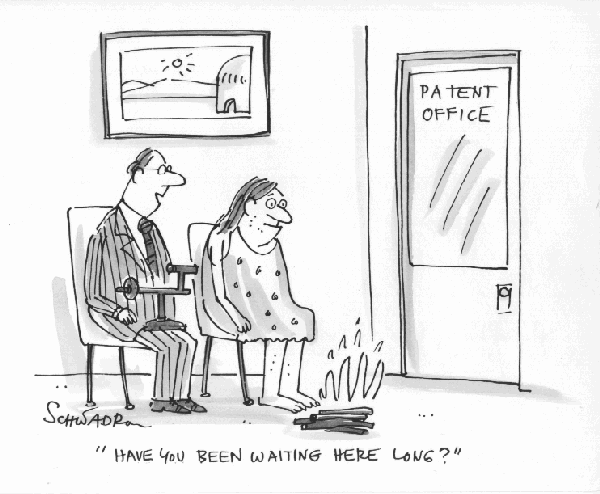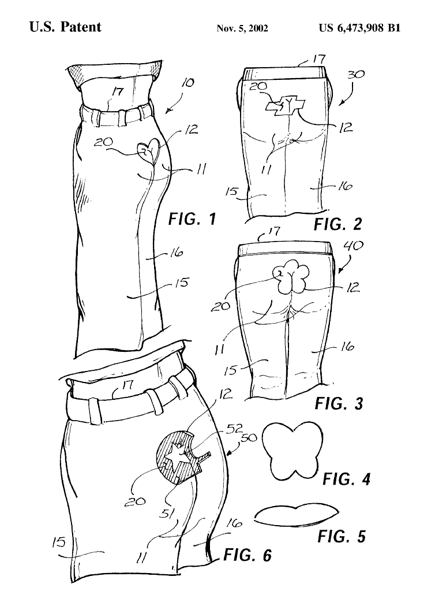Proposal: New Conditions for Patentability
Patents are a hot topic these days. A lot of the debate tends to center around notions of fairness or finding ways to apply current standards better, which I sense hasn't resulted in much progress. Some do argue for fundamentally new ways to define what should and shouldn't be patentable, but what I've seen so far strikes me as either a bit narrow in scope or too sweeping. I think there's something in the middle to consider. More on that in a sec.
First, let's revisit the traditional argument for patents to exist in the first place -- i.e. inventors will be less motivated to bring their creations to the world if others can easily copy their idea. Therefore, giving them patent protection should result in a boost in innovation, economic productivity and general consumer utility.
A BU School of Law paper from a few years back attempted to gather empirical evidence on the premise above employing the same methodology used to demonstrate the positive economic impact that most economists agree are associated with basic property rights. The findings if anything support the converse:
...the empirical economic evidence strongly rejects simplistic arguments that patents universally spur innovation and economic growth. The direct comparison of estimated net incentives suggests that for public firms in most industries today, patents may actually discourage investment in innovation.
As with any study, we should exercise a healthy level of skepticism. The authors, Bessen and Meurer, are affiliated with an organization that may or may not have a specific agenda, but to date I've seen only respect for their work, even among critics and there are many others that have come to the same basic conclusions. (Plus, I kind of like the fact that a major law school published a paper that in effect makes a case for less lawyering.)
Now, even if we take as fact that patents generally fail to spur growth and innovation, it's probably unwise to look to blanket abolishment. The authors are careful to note there are exceptions, e.g. in the pharmaceutical industry, where you have exceedingly high upfront R&D requirements and long development cycles. Additionally, there may be cases where downside risk is just too high to remove patents completely should it disrupt an entrenched system of creation and delivery for products and services that are critical to human well-being (again pharma is a pretty good example).
Instead, I think the current definition and conditions for patentability need to be expanded to establish a higher standard. In addition to the general subject matter described as patentable, and the conditions of usefulness, novelty and non-obviousness, I'd add at least one more:
- High Barriers to Entry: The problem of 'free-riders' is most acute when the originators invest large amounts of money and time upfront only to let others copy them without having to bear the burden of those fixed costs. This is a legitimate concern and I believe a valid and practicable criterion for assessing patent-worthiness. The PTO could use direct data or industry benchmarks for average R&D capex and average time to market to serve as reasonable guidelines. In the process, they'd get to filter out a huge amount of their infamous backlog, focusing on those applicants that are taking the most economic risk, and not getting overwhelmed with trying to learn intricacies of new technologies that are hard enough to keep up with at a cursory level.
and possibly:
- Essential Societal Value: Admittedly this is harder to quantify, enforce and de-politicize, but could at least be a factor in prioritizing application reviews if it isn't already. Ultimately, patents are supposed to provide benefit to society by ensuring the populace doesn't get deprived of important creations. Some sort of most favored nation status for industries like healthcare/pharma, energy, defense, critical infrastructure, etc. may be warranted. The truth is, some inventions are just more important than others.
In closing, a quote I saw recently on Chris Dixon's blog:
That ideas should freely spread from one to another over the globe, for the moral and mutual instruction of man, and improvement of his condition, seems to have been peculiarly and benevolently designed by nature, when she made them, like fire, expansible over all space, without lessening their density in any point, and like the air in which we breathe, move, and have our physical being, incapable of confinement or exclusive appropriation. Inventions then cannot, in nature, be a subject of property.
- Letter from Thomas Jefferson to Isaac McPherson
This from a Founding Father, but also a bit of a tinkerer in his own right.
 March 27, 2011 |
March 27, 2011 |  Post a Comment
Post a Comment 

Reader Comments